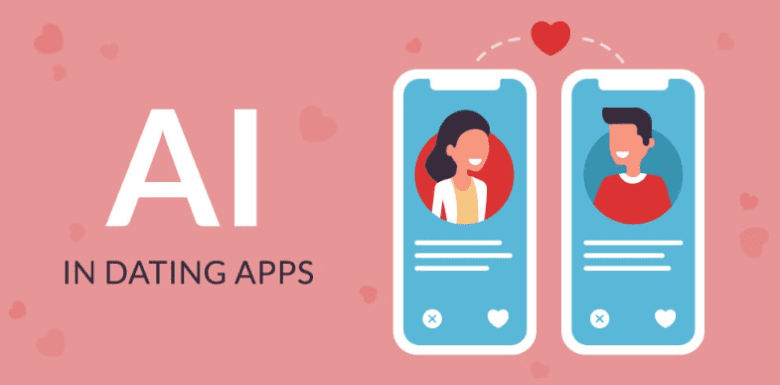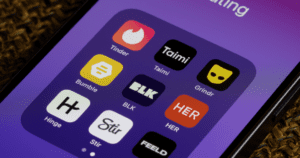In today’s fast-paced digital world, more than 300 million people worldwide use dating apps to find partners, seek meaningful connections, or explore casual relationships. The explosion of online dating platforms like Tinder, Bumble, and Grindr has created a unique opportunity for tech companies to leverage AI (artificial intelligence) to streamline, optimize, and even emotionally influence the dating process.
But while the use of AI on dating platforms offers convenience, personalization, and scale, it also introduces serious ethical challenges. From data misuse to emotional manipulation, this new landscape is fraught with complex issues that deserve thoughtful attention from developers, app users, and regulators.
This article breaks down the phenomenon of AI in dating by highlighting key ethical considerations, real-world risks, and the actions needed to help users safely navigate this shifting landscape.
Where AI Shows Up in Today’s Dating Apps
The implementation of AI-driven features within online dating services is more pervasive than most users realize. Below are the core areas where AI systems are embedded into your romantic digital experience.
Crafting the “Perfect” Profile with AI
Many dating apps now use AI to auto-generate or suggest profile bios, job titles, and hobbies that may increase user engagement. These platforms scan prior user behaviors and apply learning algorithms to adjust profile presentation to match current preferences and social trends.
But this also poses a major ethical dilemma: If an AI creates or refines a profile, is the representation of that user still authentic? What happens when someone falls for a profile written by an algorithm and not the person behind it?
Chatbots and Response Automation
Modern apps like Bumble are beginning to integrate AI-driven chat tools that suggest conversation starters or even automate replies based on prior chat history. These “AI wingmen” may help users overcome social anxiety but can blur lines between genuine interaction and synthetic scripting.
The fear here is that this leads to surface-level engagements and ultimately undermines authenticity and intimate communication.
Matchmaking Algorithms and Preference Learning
Perhaps the most powerful use of AI is in matchmaking. Algorithms analyze behavioral signals — swipes, likes, messages — to recommend potential matches. These engines learn your preferences over time and refine results accordingly.
While this may enhance efficiency, it also raises flags about bias, discrimination, and whether users are truly making choices or simply responding to what the algorithm wants them to see.
The Ethical Dilemma: Can Love Be Programmed?
One of the central questions in this debate is whether the use of AI in online dating promotes or undermines human connections. The answer isn’t simple.
On one hand, AI systems help reduce friction by offering faster matches, more accurate filters, and curated user experiences. On the other hand, they introduce a layer of algorithmic control that can distort genuine relationships and skew emotional investment.
The real ethical dilemma lies in the opaque nature of many platforms. Most users aren’t told how these systems work, which metrics matter, or whether their personal information is used to train future algorithms. This lack of transparency erodes trust and challenges the very notion of consent in data-driven dating.
The Risks of Deception and Emotional Manipulation
As AI becomes more embedded in apps, the potential for deception and emotional manipulation grows.
Chatbots can be programmed to appear flirtatious, supportive, or witty, even if there’s no human behind the screen. And since these tools are designed to keep users engaged, they may withhold honest information about who — or what — is responding.
Some malicious actors even use AI to create deepfake profiles that look real and behave predictably to scam victims, manipulate emotions, or commit fraud. This form of catfishing — made scalable through AI — can cause serious psychological damage and financial loss.
Moderation tools are being developed to detect fake profiles and abusive behavior, but their implementation remains inconsistent across platforms.
Privacy, Consent, and Personal Data at Risk
Every time you swipe, message, or update your bio, you generate personal data. That includes your location, preferences, political views, sexual orientation, and even phone numbers or messages you share intimate details through. This personal information is incredibly valuable — not just to the app, but to third-party advertisers and tech companies.
Privacy Concerns and Data Collection
Most online dating services collect extensive metadata. These include timestamps, chat logs, emotional sentiment analysis, and behavioral prediction patterns — all of which are used to train AI systems.
However, in most cases, users are not fully informed about how their data is stored, used, or sold. The opaque nature of this process creates deep privacy concerns and violates informed consent.
Regulation and the Need for Transparency
Currently, there’s little legal oversight regarding AI’s role in dating apps. While some governments are beginning to enforce data privacy laws like GDPR and CCPA, many apps operate globally with few consistent standards.
We urgently need regulation that enforces transparency, ensures users are informed about how their data is used, and mandates the right to opt out of algorithmic profiling.
Bias, Discrimination, and the Algorithmic Love Trap
It’s important to remember that AI learns from historical data, which means it often reflects society’s worst biases. When dating app users repeatedly swipe right on “tall men” or “light-skinned women,” the algorithm interprets this as preference, not prejudice.
This results in a cycle of discrimination, where certain demographics are recommended more often while others are overlooked. Research has shown that people of color, people with disabilities, and LGBTQ+ individuals are less likely to be shown in mainstream media.
Bias isn’t just a flaw — it’s a systemic ethical problem that compounds over time unless actively addressed by the developers behind the algorithms.
Gen Z and the Changing Nature of Digital Romance
For Gen Z, who grew up immersed in digital technology, the idea of using dating apps is second nature. But the reliance on AI-driven features in dating has led to a new shift in how younger generations approach romance.
On one hand, these tools help streamline the first interaction, reduce social anxiety, and increase access. On the other hand, they may foster detachment, commodify human relationships, and lead to decision fatigue. Many young users now cycle through apps not to find love — but to feel temporarily attractive, entertained, or validated.
This creates a generation of app users for whom forming deep, intimate relationships becomes harder — not easier.
How Developers and Governments Can Build Ethical Dating Systems
The future of AI in dating doesn’t have to be dystopian. With smarter implementation and thoughtful design, we can make online dating safer, more inclusive, and more humane.
Developers should:
- Prioritize privacy and safety by limiting the scope of data collection
- Offer transparent explanations for how matches are generated
- Conduct regular audits for bias and discriminatory outputs
- Use AI for safety features — not marketing manipulation
Governments must:
- Enact policies that protect users’ personal information
- Require dating platforms to disclose when AI systems are in use
- Allow users to opt out of AI-powered personalization
- Penalize companies for failing to protect against fake profiles and catfishing
Conclusion: Building a Better Future for AI-Powered Romance
The use of AI in online dating apps presents both a fascinating innovation and a profound ethical challenge. On one hand, artificial intelligence helps to match, refine, and enhance the dating experience. On the other hand, it risks reducing genuine human emotion to mere metrics.
To move forward responsibly, we must prioritize authenticity, consent, transparency, and regulation. As both users and creators of these platforms, we have the responsibility to shape AI’s role in romance into one that honors our deepest need — real, respectful human connections.



